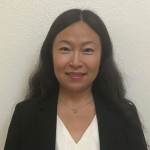Why Should Business Owners Consider Section 1202
What is Section 1202?
The Qualified Small Business Stock (“QSBS”) gains exclusion is known as Internal Revenue Code Section 1202. Section 1202 allows a portion or 100% eligible capital gains from QSBS to be excluded from federal income tax. The exclusion applies only to QSBS held for more than five years, and the percentage of eligible gain excluded by Section 1202 depends on when the shareholder acquired the QSB stock. If a taxpayer acquired QSBS after September 27, 2010, he or she might exclude the 100% eligible gain on the sale of the QSBS.
What is a Qualified Small Business?
In 2018, the Tax Cuts and Jobs Act (TCJA) added section 199A of the Code for the benefit on the Qualified Business Income from a Qualified Trade or Business. For section 199A purposes, Qualified Businesses under section 1202 are also Qualified Trade or Businesses under Section 199A. According to the definition of Qualified Trade or Business, most businesses involving services performed in the fields of health, law, engineering, architecture, accounting, actuarial science, performing arts, consulting, athletics, financial services, or brokerage services are not Qualified Business for Section 1202. A business such as banking, insurance, investing, also does not qualify (Lee, 2019; IRS, 2020).
While the tax benefits for Section 1202 are very generous, a QSBS must meet all of the following tests:
- It must be original issuance stocks in a C corporation (that is, not S corporation stock).
- It must have been originally issued after August 10, 1993.
- As of the date the stock was issued, the corporation was a domestic C corporation with total gross assets of $50 million or less (a) at all times after August 9, 1993, and before the stock was issued, and (b) immediately after the stock was issued.
- You must have acquired the stock at its original issue (either directly or through an underwriter), either in exchange for money or other property (other than stock) or as pay for services (other than as an underwriter) to the corporation.
- During substantially all the time you held the stock: The corporation was a C corporation; At least 80% of the value of the corporation’s assets were used in the active conduct of one or more qualified businesses; and the corporation wasn’t a foreign corporation (IRS, 2020).
The Benefits of Section 1202
Although Section 1202 requires the QSBS to be C corporation’s stocks, companies currently operating other types such as partnerships might benefit from Section 1202 by converting under state law, being a C corporation, or transferring their assets to a newly organized corporation. The eligible gain is calculated on the date the assets contributed to the C corporation. Besides, Section 1202 permits taxpayers to hold QSBS through any partnership, S corporation, RIC, or common trust fund.
It is worth noting that the gross assets test is based on an adjusted basis rather than the fair market value of the assets. That cost-basis rule is more favorable to the business owners or investors who contribute high appreciated but low adjusted basis assets to a C corporation. However, if a taxpayer contributes property (other than money or stock) to a qualified small business corporation in exchange for stock in the corporation, the stock’s basis will be no less than the fair market value of the contributed property. As a result, taxpayers have the opportunity to increase tenfold the amount of gain subject to partial or complete exclusion by contributing appreciated property (Lee, 2019).
Furthermore, Internal Revenue Code Section 1045 allows a taxpayer to roll over the gain on a QSBS disposition into another QSBS of a different issuer. The QSBS must be held for more than six months prior to disposition, and the rollover must occur within 60 days. That might provide a planning opportunity for those investors who wish to delay the capital gain from Section 1202.
To learn more about the Financial Planning Program at California Lutheran University contact Graduate Admission at clugrad@CalLutheran.edu or visit us at https://www.callutheran.edu/fp.
Hratch J Karakachian, CPA, ESQ, is a senior adjunct faculty member in California Lutheran University School of Management. He has been teaching in the MBA in Financial Planning Program since 2013. He has taught Principles of Estate Planning, Income Tax and Strategy, Managerial Accounting and Foundations of Accounting and Finance courses.
Dr. Chia-Li Chien is a succession program director at Value Growth Institute, a succession consulting practice dedicated to helping business owners increase the equity value of their firms. Before her private consulting practice, she held several senior management positions in Fortune 500 companies. Dr. Chien is a director of the financial planning program in the School of Management at California Lutheran University. Dr. Chien is a frequent speaker about succession and retirement planning at national conferences and has published three books, including her most recent publication, “Enhancing Retirement Success Rates in the United States.” Dr. Chien serves on the boards of various national financial service associations. She holds a doctorate in financial planning and is a Certified Financial Planner (CFP®) as well as Project Management Professional (PMP®).
About the Author:
Jade Zhang is a graduate student at California Lutheran University expecting to graduate in July 2020. She is studying for a Master of Science in Financial Planning.
References:
IRS. (2020). 2019 Instructions for Schedule D (Rev. January 2020): Exclusion of Gain on Qualified Small Business (QSB) Stock. Retrieved from https://www.irs.gov/instructions/i1040sd.
Lee, Paul. (2019 ). QSBS: The Quest for Quantum Exclusions. 8th Annual Institute on Tax, Estate Planning and The world Economy. Retrieved from https://drive.google.com/file/d/1-EDhRK6w5RRUdSoLAq7qHQZFBZQfVdRc/view



